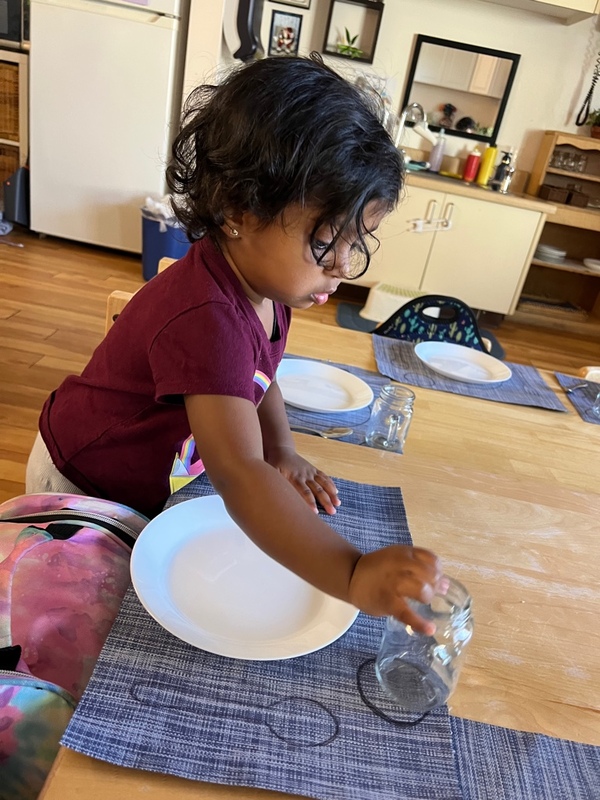(858) 759-0631
The Montessori Method Cures the Summertime Blues!
Cooking and Reading Together Will Engage Your Preschoolers—And Develop Independence and Imagination.
The hectic pace of parental life takes a lull when school is out. For ten glorious weeks, the family shares the opportunity to spend time together. And for a few weeks, it is a wonderful time--without burdensome schedules, appointments, classes, and lessons.
Surely, letting our kids take their feet off the pedal for a while is okay because they can follow their mind where it wants to go. When school’s out, kids enjoy simple, pure, and undiluted time in all its repetitive, redundant, and monotonous splendor.
One day, however, it’s time to continue filling those hours without reliance on television, video games, and electronic media.
What to do now? Let’s use the Montessori Method while cooking and reading with children.
Cooking and Baking Bonding
We’ve all heard of STEAM. No, not boiling water steam!
Science, technology, engineering, art, and math.
Is it surprising to say that cooking and baking involve science, art, and math?
Of course not! For example, let’s envision engaging your child by making cookies together.
To begin, share an arithmetic lesson.
Where?
Why, the grocery store, of course.
“What specific ingredients do we need to make chocolate chip cookies, baby?”
Let’s count the total number together.
“How much does it cost to make cookies, baby?”
Let’s put each cost on a piece of paper and add it up.
“I think Daddy is going to love what we bake together!”
For young minds, preparing exact measures of flour, sugar, butter, eggs, and chocolate chips is a core learning experience of how precisely ingredients must be blended.
Then, the chemical reaction of ‘liquid into the oven, solids out of the oven’ creates a second lesson for young children. What happens when food is cooked?
As parents and children wait for cookies to bake, together we pick up and put away all the items we used to make them. Then, we prepare for the presentation of the day—cookies for the family!
The overall value of one of the simplest joys is many—bonding, togetherness, accomplishment, and truly interactive, communicative learning!
Reading Together Still Rules!
Before 1920, reading was a key component in learning and togetherness. Agrarian America gathered around the fireplace after supper under oil lamps and read novels aloud by authors ranging from Twain to Dickens to Poe.
But that was a century ago!
Still, today, reading with your toddlers, primary and preschoolers is one of the most important tools to instill a love of lifelong learning.
Starting with colors and shapes and designs of objects, your toddler begins to see visually and hear from you the sounds of those objects. What does Mike Matthews’ steam shovel sound like? Or, how does The Cat in the Hat talk?
Reading shares knowledge between parent and child. It fosters questions of who, what, when, where, why, and how. And, it creates a powerful bonding tool between the two of you—a bonding that builds on itself to create something greater going forward. Emotion, intellectuality, concentration, individuality, independence, and communication are all built on reading.
Best of all, reading evolves from your interest in your children as an exploratory tool to other times, places, and events that your child’s imagination will build upon.
The Montessori Difference
“Early childhood education is the key to the betterment of society,” Maria Montessori wrote. “When you have solved the problem of controlling the attention of the child, you have solved the entire problem of (his or her) education.”
Cooking and reading may seem commonplace or old-fashioned to parents but it is a path to building many skill sets from an early age. When added to the menu that a Montessori private school provides—one based on each child learning at his or her chosen speed and interests—these summertime activities will build the foundation toward independence and a love of lifelong learning.
Blog Cateogry:
Featured Image:

